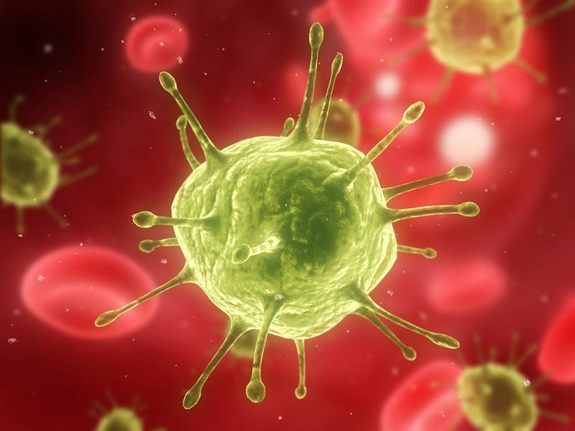
Two HIV Patients Are Virus-Free After Bone Marrow Transplant

Get the world’s most fascinating discoveries delivered straight to your inbox.
You are now subscribed
Your newsletter sign-up was successful
Want to add more newsletters?

Delivered Daily
Daily Newsletter
Sign up for the latest discoveries, groundbreaking research and fascinating breakthroughs that impact you and the wider world direct to your inbox.

Once a week
Life's Little Mysteries
Feed your curiosity with an exclusive mystery every week, solved with science and delivered direct to your inbox before it's seen anywhere else.

Once a week
How It Works
Sign up to our free science & technology newsletter for your weekly fix of fascinating articles, quick quizzes, amazing images, and more

Delivered daily
Space.com Newsletter
Breaking space news, the latest updates on rocket launches, skywatching events and more!

Once a month
Watch This Space
Sign up to our monthly entertainment newsletter to keep up with all our coverage of the latest sci-fi and space movies, tv shows, games and books.

Once a week
Night Sky This Week
Discover this week's must-see night sky events, moon phases, and stunning astrophotos. Sign up for our skywatching newsletter and explore the universe with us!
Join the club
Get full access to premium articles, exclusive features and a growing list of member rewards.
Two men with HIV who received bone marrow transplants in Boston appear to have no detectable levels of the virus in their bodies, and were able to stop taking medication for the condition, researchers say.
One patient has been off HIV medication for seven weeks, and one for 15 weeks, and neither showed signs of the virus returning, according to the New York Times.
The patients are not considered cured of HIV because there's still the possibility that the virus may be hiding somewhere (in a tissue not tested by the researchers), and that the virus may return.
The bone marrow transplants were performed because both patients had blood cancer, so the findings don't apply to most patients with HIV. Patients without blood cancer cannot have the treatment because it is risky, and carries a 15 to 20 percent risk of death, the Times said.
Cells from bone marrow give rise to immune cells, the very cells that are infected with HIV. The Boston patients kept taking antiretroviral drugs after their transplants so that their "new" immune cells would not be infected with HIV. It's also thought that the patients' new immune cells attacked and destroyed the "old" immune cells infected with HIV.
The finding may provide AIDS researchers with new clues regarding how the body's own immune system can be leveraged to attack HIV.
The cases are similar to that of the "Berlin patient" who has been HIV-free for five years following a bone marrow transplant. However, the Berlin patient received bone marrow donated from a person with a special mutation that made the immune cells resistant to HIV. The bone marrow donors for the two Boston patients did not have this mutation.
Get the world’s most fascinating discoveries delivered straight to your inbox.
Follow Rachael Rettner @RachaelRettner. Follow LiveScience @livescience, Facebook & Google+.

Rachael is a Live Science contributor, and was a former channel editor and senior writer for Live Science between 2010 and 2022. She has a master's degree in journalism from New York University's Science, Health and Environmental Reporting Program. She also holds a B.S. in molecular biology and an M.S. in biology from the University of California, San Diego. Her work has appeared in Scienceline, The Washington Post and Scientific American.
 Live Science Plus
Live Science Plus





